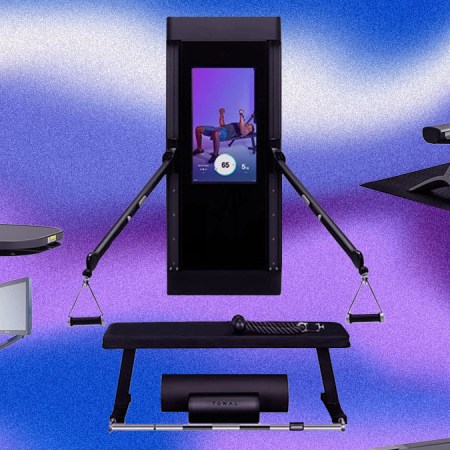Don’t get us wrong, there are a few worthwhile offerings in the severance packages Peloton gave to the 2,800 employees it fired yesterday.
According to an open letter from John Foley (CEO as of last week, now being pushed into a role as Executive Chair), laid-off employees can expect cash compensation, an extension of healthcare services and equity vesting periods, plus assistance with finding a new job — via a third party vendor that specializes in resume-building and career leads.
But the final offering is where matters take a head-scratching turn. The “but wait, there’s more” of the severance package, Foley is also throwing in one free year of an all-access Peloton membership, valued at $39 a month.
Why in the hell is Peloton doing this? Why would they assume that nearly 3,000 forsaken employees would want to remain part of “the tribe,” and spend 30 free minutes a day exercising on the poorly-run platform that got them to this point? After all, while Foley did thank the contributions of the software engineers, hardware designers, content creators and retailers that got Peloton to this point, it was the decision-making of the executive team that brought Peloton here.
The reason Peloton is offering disgruntled employees a tone-deaf membership is the same reason the company was down $440 million last quarter, will make $1 billion less this fiscal year than projected and has lost over 80% of its share value (from last year’s peak) this week. Peloton has precisely no clue what it’s doing, and subsists on a bizarre brand of self-defeating optimism.
Simply put, pandemic success messed with the company’s brains. It really messed with the brain in charge of all the other brains. Hedge fund Blackwells Capital, which holds significant shares in Peloton, released a scorching 65-slide presentation this week, which detailed the lack of competence from Foley in his role as CEO.
These firings, for instance, seem to be a direct response by Foley to his own hiring over the last four years. Blackwells pointed out that Peloton has increased its size 20-fold since 2018, yet “compared to other subscription-based companies … has the lowest revenue per employee.”
Foley’s approach has been overtly maximalist for the last year-plus, fueled mostly by the euphoria of quarantine, when home workouts held consumers captive, and Peloton deliveries were backed up for months at a time. But the future of a planned $400-million Ohio factory is now in doubt, as Peloton takes an extended break from making bikes, while employees remain confused by Foley’s decision to sign a $450-million, 15-year lease at an unnecessarily large headquarters in Manhattan.
Blackwells accuses Foley of “unbridled optimism, “visions of grandeur” and “inability to forecast demand.” They also use his own words against in an amusingly petty, though effective, portion of the presentation, titled “Foley on Foley.” The manager seems acutely aware of his own incompetence, and has released a bevy of humdingers over the years, including:
- “I think I’m not a very good manager.”
- “I interview almost nobody.”
- “I’ll go sometimes months without talking to our CTO, which as a CEO of a technology company, that’s kind of rare.”
- And on what his colleagues would say about his strengths: “I’m not sure they’d say I have many strengths at all.”
The majority of media attention has been afforded to some of Peloton’s more dramatic controversies, like the dangerous treadmill slats that injured (and killed) dozens of toddlers, or the multiple times fictional characters have experienced cardiac arrest after a HIIT session on the bike. But the brand’s largest issue has been staring us in the face this whole time — a leadership team intoxicated by growth, that pushed its outer borders way too far into the unknown. The Visigoths have now made it to Rome.
For those on the inside, and especially for those who’ve now lost their jobs, you can see why that free monthly membership is so insulting. And here’s the kicker: there’s no guarantee a potential buyer would even honor it. Blackwells wrote out a list of conglomerates that Peloton should immediately sell to (in addition to Nike and Amazon, which were both rumored last week). That list includes the usual suspects: Netflix, Spotify, Meta, Disney, Oracle, Comcast. Can any of them turn this ship around? Maybe. It can’t get any worse from here.
Whether you’re looking to get into shape, or just get out of a funk, The Charge has got you covered. Sign up for our new wellness newsletter today.


















